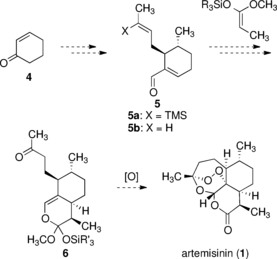
IRIS login | Reed College home Volume 96, No. 2: June 2017
Fighting Malaria On the Cheap
Malaria is a killer. Over 200 million people are infected every year, and over one million, mostly children, die as a result. It is not a lack of medicine that allows malaria to run rampant; a highly effective treatment called Artemisinin-based Combination Therapy (ACT) has existed for years. The issue is cost: ACT's main ingredient, artemisinin, is prohibitively expensive. A research team led by Indiana State University professor Silas Cook '99 has found a way to change that.
Artemisinin is usually obtained in one of two ways: harvesting it from its natural home in the sweet wormwood plant, or using a bit of biological alchemy to create a synthetic version. Harvesting it from wormwood is a difficult process to begin with: combined with crop shortages caused by poor planning, natural disasters, and other unpredictable disruptions, this method has proven incapable of providing a consistent, cheap yield.
Synthesis has always shown more promise, but, although chemists have developed several different methods to synthesize artemisinin over the last thirty years, none of them have been simple and cheap enough to compete with natural production. Silas and his team found a way to make this method competitive (outlined in an article for the Journal of the American Chemical Society). They did this by sidestepping the use of protecting groups, the transformative process usually used to build up the molecule of artemisinin. Instead, they relied on an innovative new approach called cascade reactions. By relying on cascade reactions, Silas was able to adopt the cheap, widely available chemical cyclohexanone as the building block of his synthesis—thus avoiding the expensive ingredients of traditional synthesis.
While the details of Silas's accomplishment may seem daunting to those who stayed away from the Science buildings, it holds vast potential for developing cheap, effective treatment for malaria. You don't have to be a chemist to know what that means.



LATEST COMMENTS
steve-jobs-1976 I knew Steve Jobs when he was on the second floor of Quincy. (Fall...
Utnapishtim - 2 weeks ago
Prof. Mason Drukman [political science 1964–70] This is gold, pure gold. God bless, Prof. Drukman.
puredog - 1 month ago
virginia-davis-1965 Such a good friend & compatriot in the day of Satyricon...
czarchasm - 4 months ago
John Peara Baba 1990 John died of a broken heart from losing his mom and then his...
kodachrome - 7 months ago
Carol Sawyer 1962 Who wrote this obit? I'm writing something about Carol Sawyer...
MsLaurie Pepper - 8 months ago
William W. Wissman MAT 1969 ...and THREE sisters. Sabra, the oldest, Mary, the middle, and...
riclf - 10 months ago